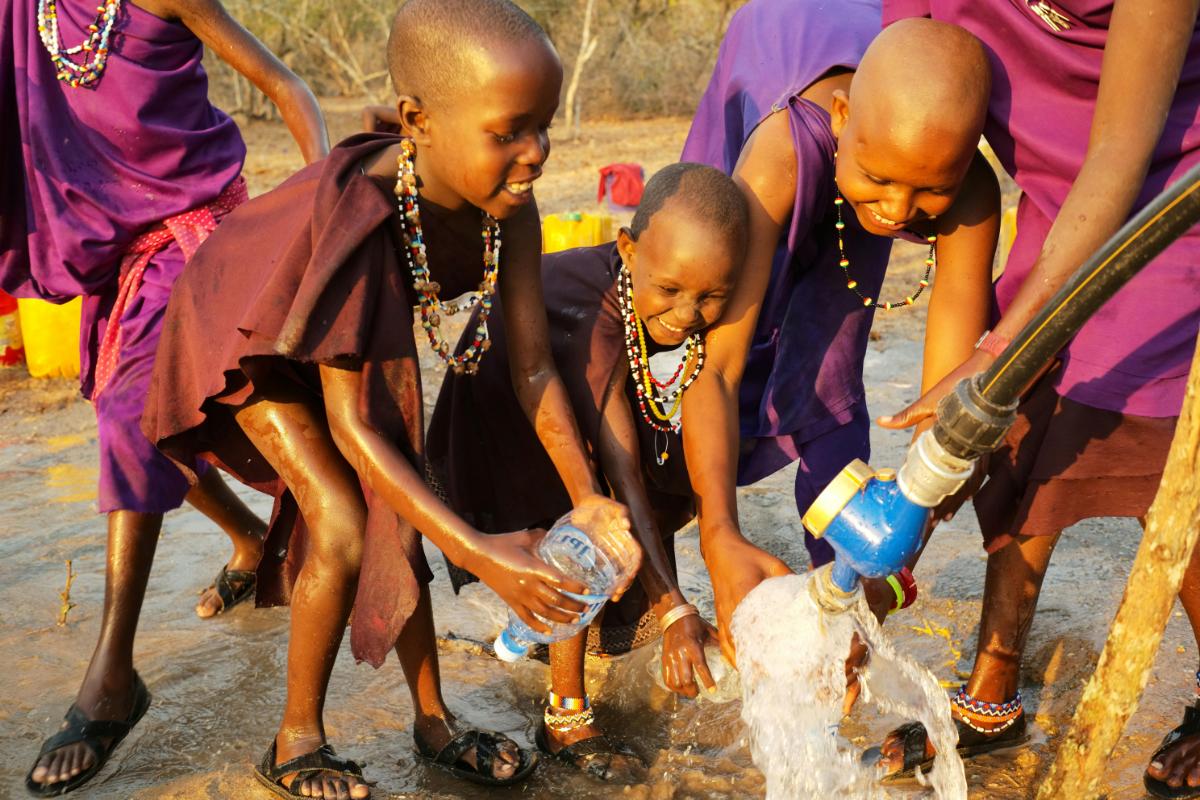How Zara Charity is Empowering Maasai Education in Tanzania
In the heart of Tanzania, a non-profit organization is making a significant impact on the lives of marginalized communities. Zara Charity Tanzania has been working tirelessly since 2009 to support orphans, women, and underprivileged people by providing basic needs such as food, shelter, clothes, and education.
The Maasai community, in particular, has faced numerous challenges in accessing quality education. Maasai education programs have been instrumental in bridging this gap, empowering young minds and fostering a sense of community.
Key Takeaways
- Zara Charity Tanzania supports marginalized communities.
- Maasai education programs empower young minds.
- The organization provides basic needs such as food, shelter, and clothes.
- Empowering education is key to fostering a sense of community.
- Zara Charity has been working since 2009.
The Maasai Community in Tanzania: Culture and Educational Challenges
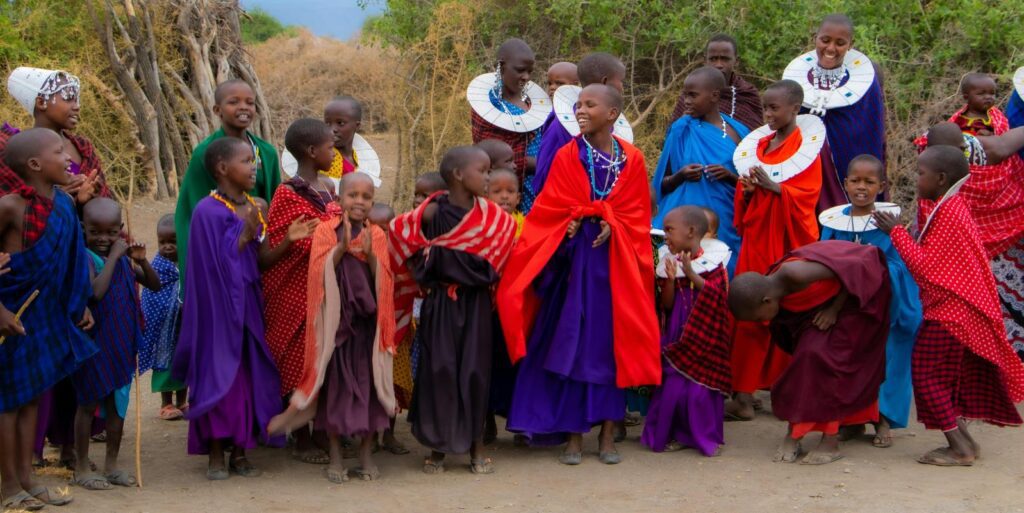
The Maasai community in Tanzania is known for its rich cultural heritage, but faces significant educational challenges. The traditional Maasai lifestyle, characterized by nomadic pastoralism and distinct cultural practices, has historically hindered their access to modern education.
Traditional Maasai Lifestyle and Values
The Maasai people are renowned for their vibrant culture, which includes traditional attire, customs, and a strong communal structure. Their lifestyle is deeply rooted in pastoralism, with cattle playing a central role in their economy and cultural identity.
Cultural Practices and Community Structure
Maasai cultural practices are centered around their nomadic lifestyle, with a strong emphasis on community and family ties. Their societal structure is typically organized around age sets and clans, with elders holding significant authority and respect within the community.
- Traditional Maasai attire and adornments
- Rites of passage and initiation ceremonies
- Community decision-making processes
Barriers to Education in Rural Tanzania
Despite the importance of education, the Maasai community faces numerous barriers to accessing quality educational services. Geographic isolation and economic constraints are significant obstacles.
Geographic and Economic Obstacles
The Maasai community is often spread across vast, rural areas with limited infrastructure. Schools are frequently located far from their settlements, making it difficult for children to attend regularly. Economic challenges, including poverty and the reliance on pastoralism, further exacerbate the issue.
- Long distances to schools
- Lack of educational infrastructure
- Economic constraints and poverty
The Impact of Limited Educational Access on Maasai Communities
Limited access to education has profound implications for the Maasai community, affecting not only individual opportunities but also the community’s overall development and integration into the broader society.
The lack of education can lead to reduced economic opportunities, increased poverty, and a diminished ability to adapt to changing environmental and economic conditions. Furthermore, it can result in the erosion of cultural identity as younger generations become disconnected from their traditional ways of life.
By understanding these challenges, organizations like Zara Charity can tailor their initiatives to address the specific needs of the Maasai community, offering hope and support to those in rural areas like Ngorongoro and Arusha.
Zara Charity Tanzania: Mission and Vision for Education
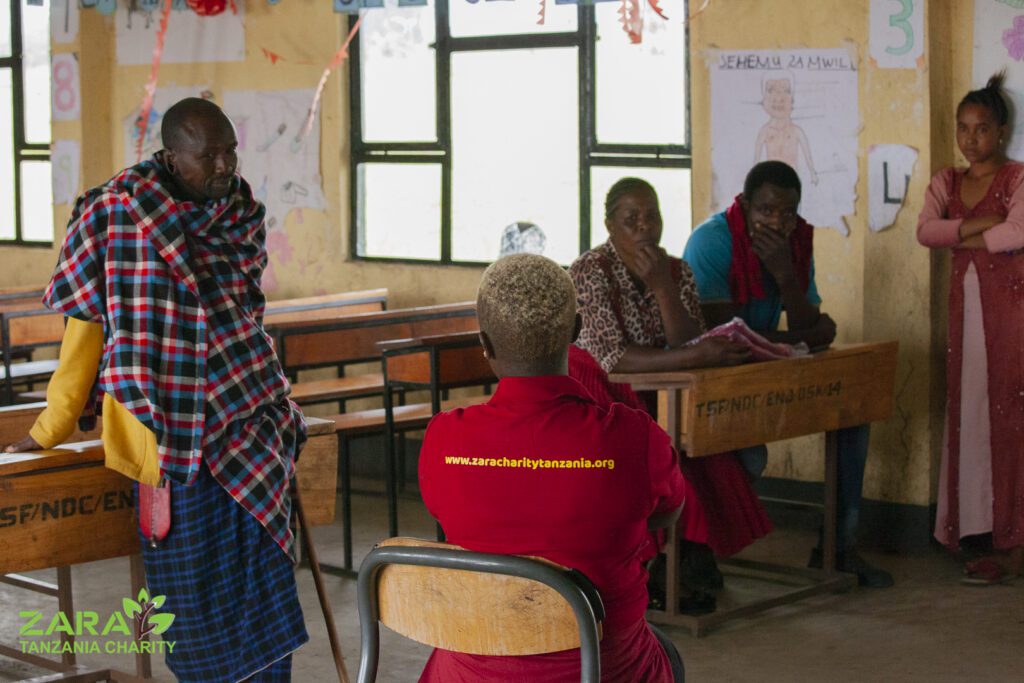
Zara Charity’s educational programs in Tanzania are designed to uplift and empower the Maasai population. Through these initiatives, children and women gain access to quality learning, aligning with Zara Charity’s mission.
The Origins and Growth of Zara Charity
Zara Charity was founded by Ms. Zainab Ansell as part of a global movement for sustainable tourism development. Initially focused on environmental conservation, the charity soon expanded its scope to include socio-economic development programs, with education being a key component. Over the years, Zara Charity has grown significantly, adapting to the needs of the communities it serves.
Core Educational Philosophy and Goals
At the heart of Zara Charity’s educational initiatives is a commitment to providing inclusive, quality education. The organization aims to bridge the educational gap for marginalized groups, particularly the Maasai community. By doing so, it seeks to empower individuals and foster community development.
“Education is the most powerful tool which you can use to change the world.” This quote resonates deeply with Zara Charity’s mission, as it strives to make a meaningful impact through education.
Partnerships and Collaborative Approach
Zara Charity recognizes the importance of collaboration in achieving its educational goals. By forging partnerships with local and international organizations, the charity is able to leverage resources and expertise, enhancing the effectiveness of its programs.
Local and International Collaborations
Partner | Contribution | Impact |
Local NGOs | Community insight and grassroots support | Enhanced program relevance and acceptance |
International Organizations | Funding, technical expertise, and global best practices | Increased program scalability and sustainability |
Through these collaborations, Zara Charity is able to implement comprehensive educational programs that address the unique needs of the Maasai community.
Zara Charity Maasai Education Programs: An Overview
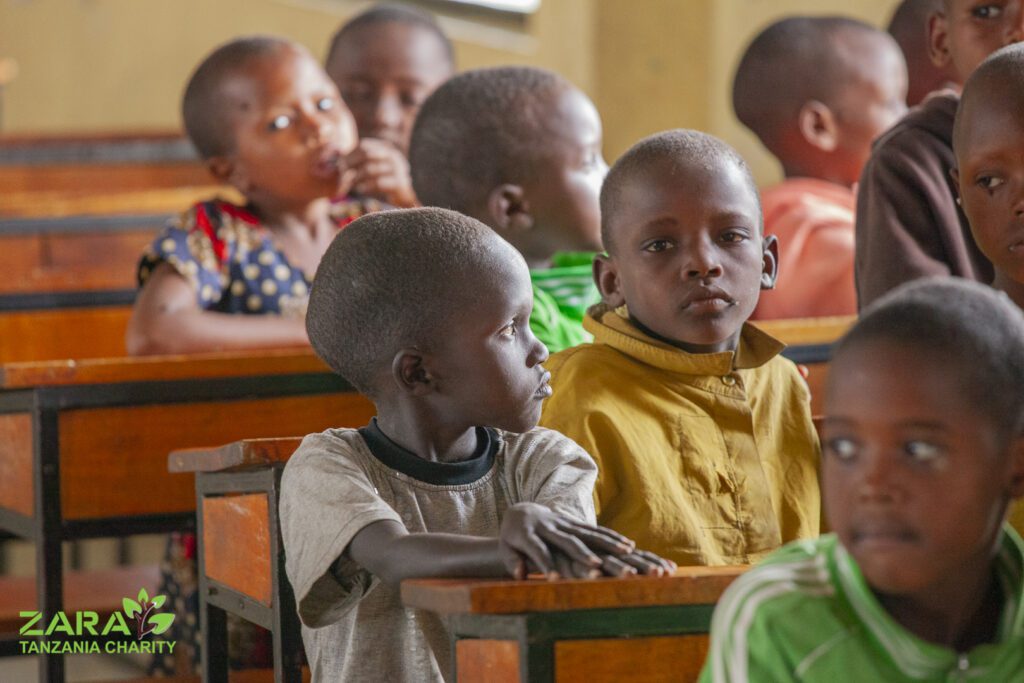
Zara Charity is making significant strides in empowering the Maasai community through comprehensive education programs. These initiatives are designed to address the unique challenges faced by the Maasai people, including poverty, cultural barriers, and limited access to quality education.
Primary Education Initiatives in Ngorongoro Region
The Ngorongoro region is home to a significant portion of the Maasai community, where Zara Charity has launched impactful primary education initiatives. These programs focus on improving educational infrastructure and resources.
School Construction and Resource Provision
Zara Charity has been actively involved in constructing schools and providing essential resources to support primary education in the Ngorongoro region. This includes:
- Building new classrooms to reduce overcrowding
- Providing textbooks and educational materials
- Training teachers to enhance the quality of education
Secondary Education Support Systems in Arusha
In Arusha, Zara Charity has established secondary education support systems to help Maasai students continue their education beyond primary school. These initiatives are crucial for developing future leaders within the community.
Scholarship Programs and Mentorship
To support secondary education, Zara Charity offers scholarship programs and mentorship opportunities. These initiatives help students overcome financial barriers and receive guidance as they navigate their educational journey.
Program Component | Description | Benefit |
Scholarships | Financial assistance for tuition and educational materials | Reduces financial burden on families |
Mentorship | Guidance and support from experienced professionals | Enhances academic performance and personal development |
Vocational Training Opportunities
Recognizing that not all Maasai youth may pursue traditional academic paths, Zara Charity also offers vocational training opportunities. These programs equip individuals with practical skills, enhancing their employability and contributing to the community’s economic development.
Breaking Barriers: How Zara Charity Addresses Educational Challenges
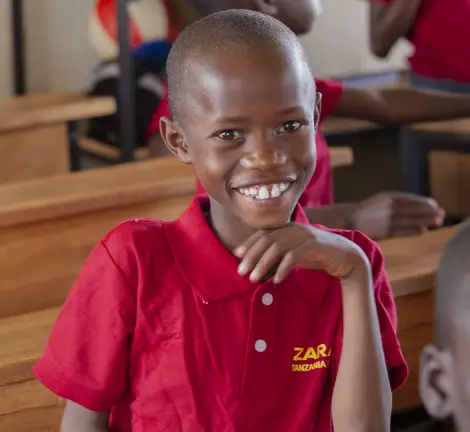

By tackling geographic isolation, cultural barriers, and financial constraints, Zara Charity is revolutionizing education for the Maasai community. These Tanzania education initiatives Zara Charity supports are a beacon for Maasai children’s education, breaking barriers to education that have long hindered their progress.
Overcoming Geographic Isolation in Remote Areas
Zara Charity has implemented innovative solutions to overcome the challenges posed by remote locations. Mobile schools and digital learning platforms have been introduced to reach children in isolated areas, ensuring they receive quality education despite the distance.
Addressing Cultural Barriers to Education
Cultural sensitivity is at the heart of Zara Charity’s approach. By working closely with community leaders and elders, they have developed educational programs that respect and incorporate Maasai traditions.
Working with Elders and Community Leaders
The charity engages in open dialogue with community leaders to understand their concerns and aspirations. This collaborative approach has helped in creating a more inclusive and effective educational system.
Financial Support Systems for Families
Zara Charity provides financial assistance to families, helping to alleviate the economic burdens that often prevent children from attending school. This support includes scholarships, school supplies, and other forms of aid.
- Scholarships for deserving students
- Provision of school materials and uniforms
- Support for school infrastructure development
By addressing these challenges comprehensively, Zara Charity is making a significant impact on Maasai education in Tanzania.
Empowering Maasai Girls and Women Through Education
Education is a powerful tool for change, and Zara Charity is harnessing its potential to empower Maasai girls and women in Tanzania. By providing access to quality education, Zara Charity is not only improving individual lives but also contributing to the overall development of the Maasai community.
Special Programs for Girls’ Education
Zara Charity has implemented special programs to support girls’ education in Maasai communities. These initiatives are designed to address the unique challenges faced by girls in these areas.
Combating Early Marriage and Promoting School Attendance
One of the key challenges is early marriage, which often disrupts girls’ education. Zara Charity’s programs work to combat this practice by promoting the importance of education and providing support to families to keep their daughters in school.
Adult Literacy Initiatives for Women
In addition to supporting girls’ education, Zara Charity also offers adult literacy programs for women. These programs aim to empower women by providing them with the skills they need to participate fully in their communities.
Success Stories and Role Models
The impact of Zara Charity’s work is evident in the success stories of the girls and women they have supported. These individuals have become role models within their communities, inspiring others to pursue their educational goals.
Profiles of Educational Pioneers
Among these success stories are women who have overcome significant obstacles to achieve their educational aspirations. Their stories serve as a testament to the transformative power of education.
Preserving Maasai Culture While Advancing Education
By integrating Maasai culture into educational curricula, Zara Charity is setting a new standard for indigenous education in Tanzania. This approach not only preserves the rich cultural heritage of the Maasai people but also enhances their educational experience.
Cultural Integration in Curriculum Development
Zara Charity has developed a curriculum that incorporates traditional Maasai practices and values. This includes lessons on Maasai history, cultural rituals, and environmental knowledge that have been passed down through generations.
Language Preservation Efforts
A key component of Zara Charity’s educational program is the preservation of the Maasai language. By teaching Maasai language in schools, they ensure that young people can continue to communicate with their elders and maintain their cultural identity.
Traditional Knowledge and Modern Education Synthesis
The charity’s approach synthesizes traditional Maasai knowledge with modern educational practices. This blend of old and new provides students with a comprehensive education that prepares them for the future while respecting their heritage.
Balancing Indigenous Wisdom with Contemporary Skills
To achieve this balance, Zara Charity has introduced vocational training programs that teach traditional Maasai skills alongside modern techniques. For example, students learn about sustainable livestock management and conservation practices.
Educational Component | Traditional Maasai | Modern Education |
Language | Maasai language instruction | English and Swahili proficiency |
Curriculum | Maasai history and cultural practices | Science, mathematics, and technology |
Vocational Training | Traditional livestock management | Modern conservation techniques |
This holistic approach to education not only preserves Maasai culture but also equips the community with the skills needed to thrive in a rapidly changing world.
Sustainable Development Through Indigenous Education Tanzania
By integrating environmental education and community leadership, Zara Charity is driving sustainable change in Tanzania. This approach not only empowers the Maasai community but also ensures that development is both environmentally and socially sustainable.
Environmental Education Components
Zara Charity incorporates comprehensive environmental education into its programs, teaching the importance of conservation and sustainable practices. This initiative helps the Maasai community understand the delicate balance between their traditional lifestyle and modern environmental challenges.
Conservation Awareness and Sustainable Practices
The charity’s conservation awareness programs educate both children and adults on sustainable land use, water conservation, and wildlife protection. By adopting these practices, the community contributes to the preservation of Tanzania’s rich biodiversity.
Community Leadership Development
Empowering community leaders is a crucial aspect of Zara Charity’s strategy. By providing leadership training and development opportunities, the charity ensures that the Maasai community has the capacity to drive its own sustainable development initiatives.
Long-term Sustainability Strategies
Zara Charity’s long-term sustainability strategies focus on creating self-sufficient communities. This involves not only educational programs but also economic empowerment and infrastructure development, ensuring that the community can thrive independently.
Initiative | Objective | Outcome |
Environmental Education | Promote conservation awareness | Sustainable land use practices |
Community Leadership | Empower local leaders | Self-driven community development |
Economic Empowerment | Foster economic independence | Thriving local economy |
Measuring Impact: Transformative Results of Tanzania Rural Education Initiatives
Measuring the impact of Zara Charity’s initiatives reveals a story of transformation, hope, and empowerment in the Maasai communities of Tanzania. By focusing on making Tanzania rural education more accessible, the organization has achieved significant results across various areas.
Educational Achievement Statistics
Zara Charity’s education programs have led to a notable increase in educational achievement among Maasai students. The organization’s efforts have resulted in improved literacy rates and better academic performance.
Graduation Rates and Continuing Education
The charity has seen a significant rise in graduation rates among its students, with many going on to pursue further education or vocational training. This has been a crucial step in empowering the next generation of Maasai leaders.
Community Development Outcomes
Beyond individual achievements, Zara Charity’s initiatives have contributed to broader community development. The organization’s programs have fostered a culture of education, encouraged community involvement, and supported local economic development.
Personal Transformation Stories from Ngorongoro and Arusha
Stories from the ground highlight the personal transformations taking place. Individuals who were once marginalized or lacked access to education are now becoming leaders and role models in their communities.
These stories underscore the profound impact of Zara Charity’s work, demonstrating how education can be a powerful catalyst for change.
Conclusion: Supporting Zara Charity’s Vision for Maasai Education
Zara Charity’s vision for Maasai education is centered around empowering future generations and supporting the community’s socio-economic development. Through various initiatives, the organization has made a significant impact in improving educational access and outcomes in rural Tanzania.
By supporting Zara Charity’s vision, individuals can contribute to creating a brighter future for Maasai communities. Empowering future generations through education is crucial for breaking cycles of poverty and promoting sustainable development. The organization’s efforts in primary and secondary education, vocational training, and adult literacy initiatives have been instrumental in achieving this goal.
As Zara Charity continues to expand its programs, ongoing support is essential to ensuring the long-term success of its mission. By backing this worthy cause, readers can play a vital role in supporting Maasai education and fostering a more equitable society. Empowering future generations is a collective responsibility, and supporting Zara Charity’s vision is a meaningful step towards achieving this objective.
FAQ
What is Zara Charity’s mission in Tanzania?
Zara Charity is dedicated to empowering Maasai education in Tanzania by providing access to quality learning, overcoming barriers like poverty and cultural limitations, and fostering community development.
What are the main challenges faced by the Maasai community in accessing education?
The Maasai community faces challenges such as geographic isolation, cultural barriers, and limited financial resources, which hinder their access to quality education.
How does Zara Charity address the educational challenges faced by the Maasai community?
Zara Charity addresses these challenges through initiatives such as school construction, scholarship programs, vocational training, and financial support systems for families, as well as cultural integration in curriculum development.
What special programs does Zara Charity offer for Maasai girls and women?
Zara Charity offers special programs for girls’ education, adult literacy initiatives for women, and programs addressing early marriage, as well as highlighting success stories and role models.
How does Zara Charity preserve Maasai culture while advancing education?
Zara Charity preserves Maasai culture by integrating cultural practices into the curriculum, preserving the Maasai language, and synthesizing traditional and modern knowledge.
What is Zara Charity’s approach to sustainable development through indigenous education?
Zara Charity’s approach includes environmental education components, community leadership development, and long-term sustainability strategies to ensure the overall sustainability of the Maasai community.
What are the results of Zara Charity’s rural education initiatives?
The results include improved educational achievement statistics, community development outcomes, and personal transformation stories from Ngorongoro and Arusha, demonstrating the positive impact of Zara Charity’s work.
How can I support Zara Charity’s vision for Maasai education?
You can support Zara Charity’s vision by contributing to their initiatives, spreading awareness about the importance of empowering Maasai education, and advocating for the rights of the Maasai community to access quality education.

